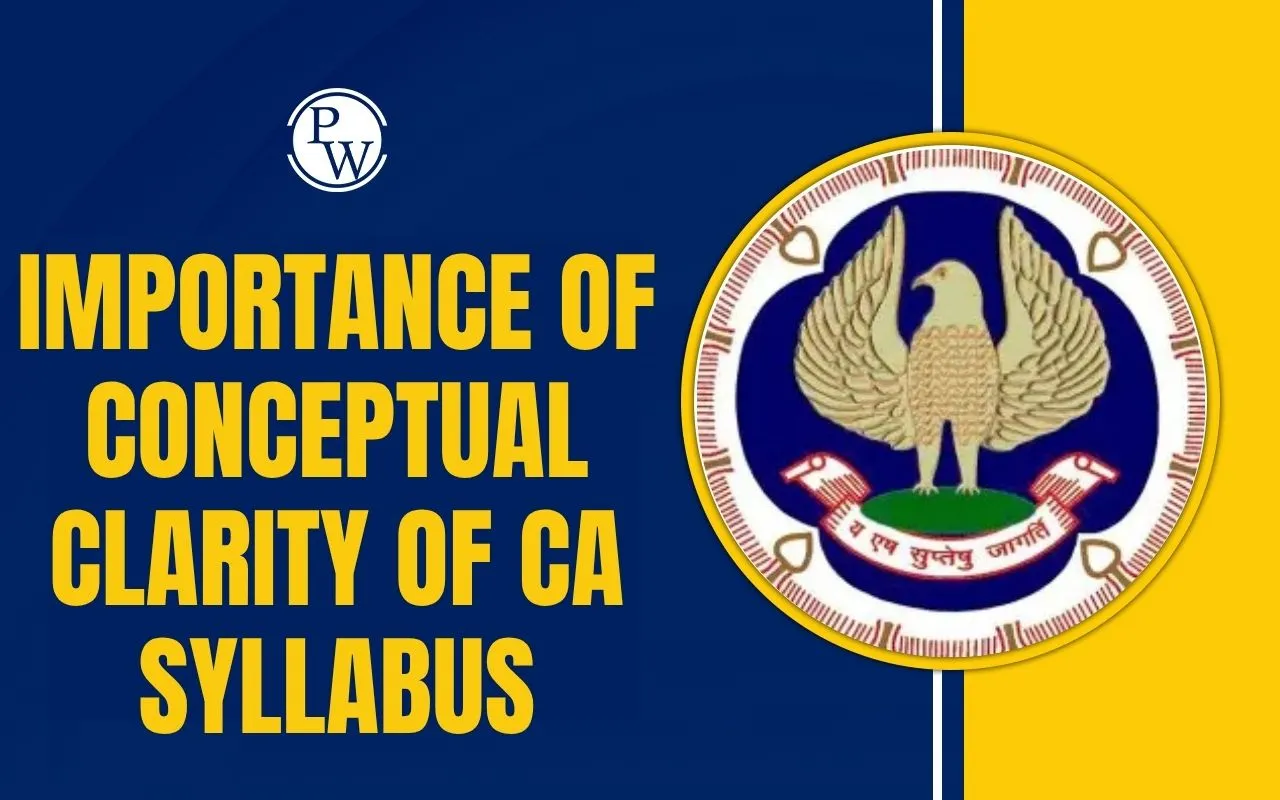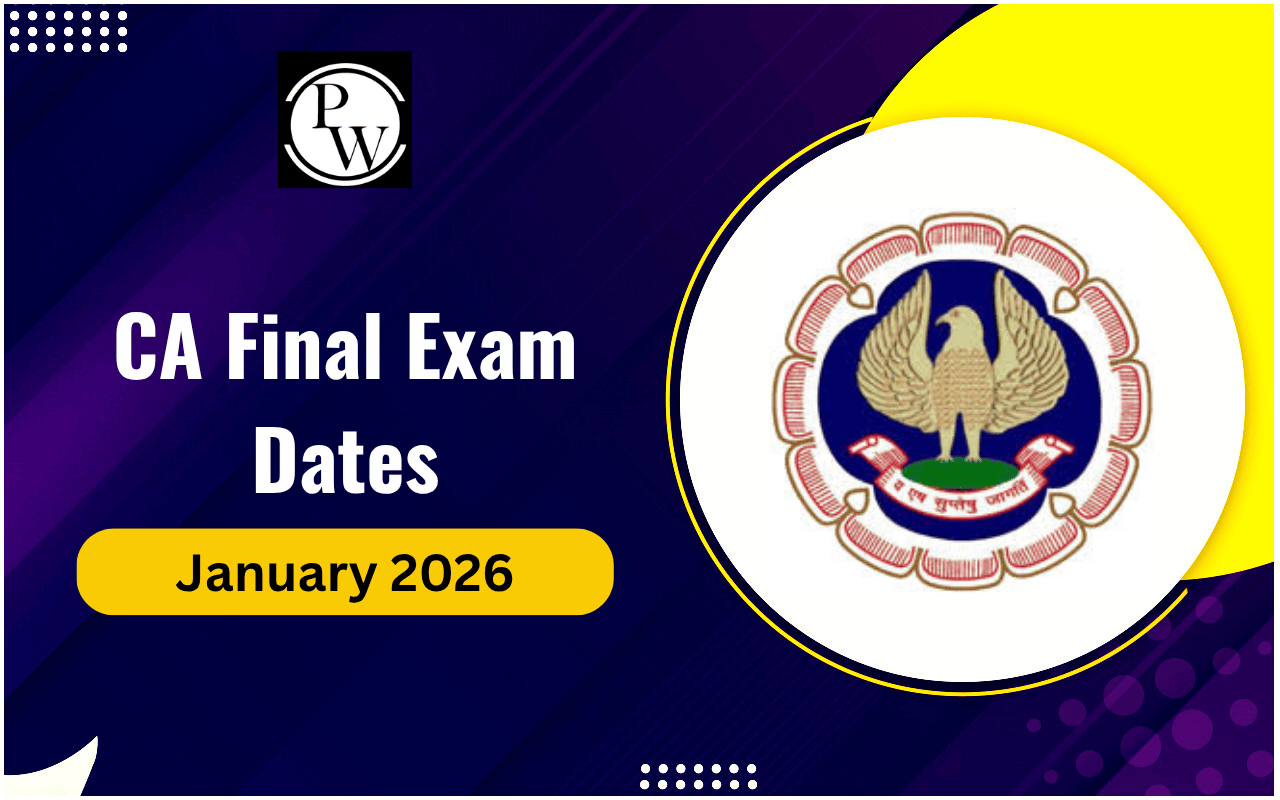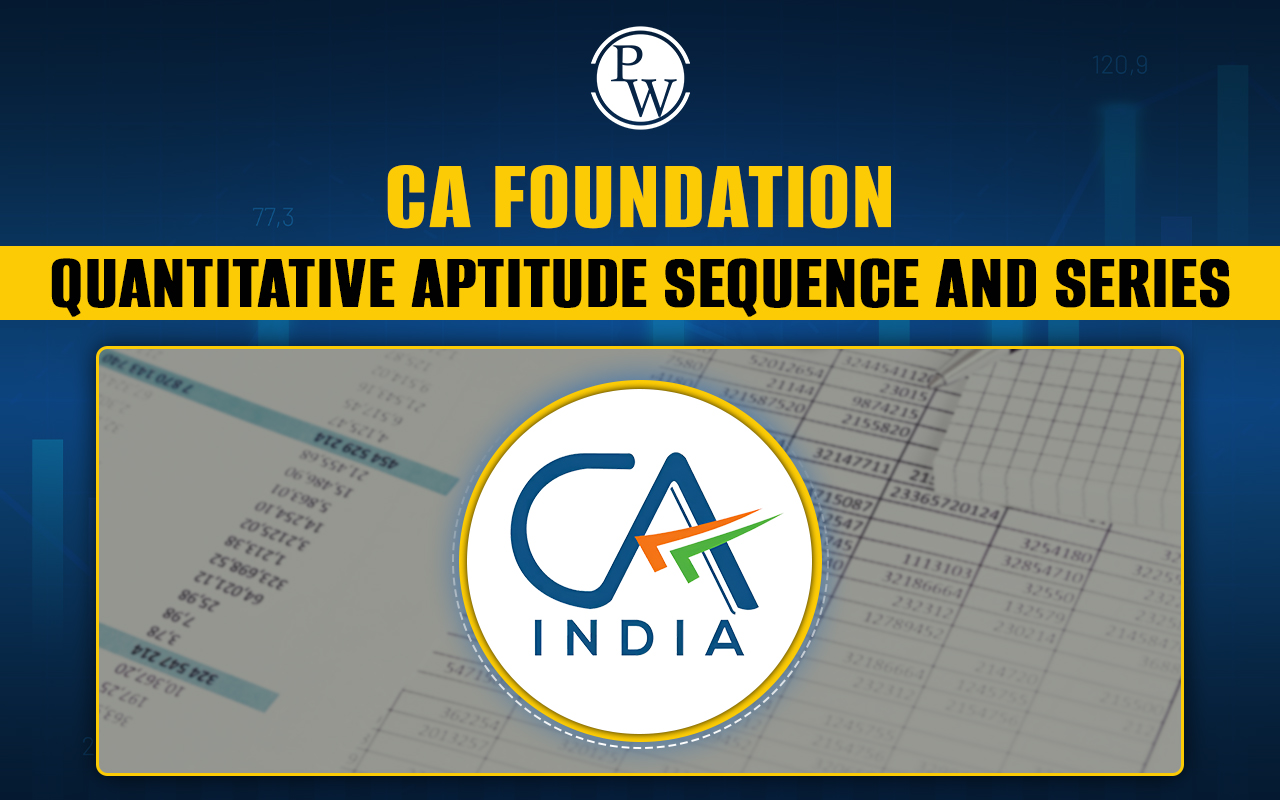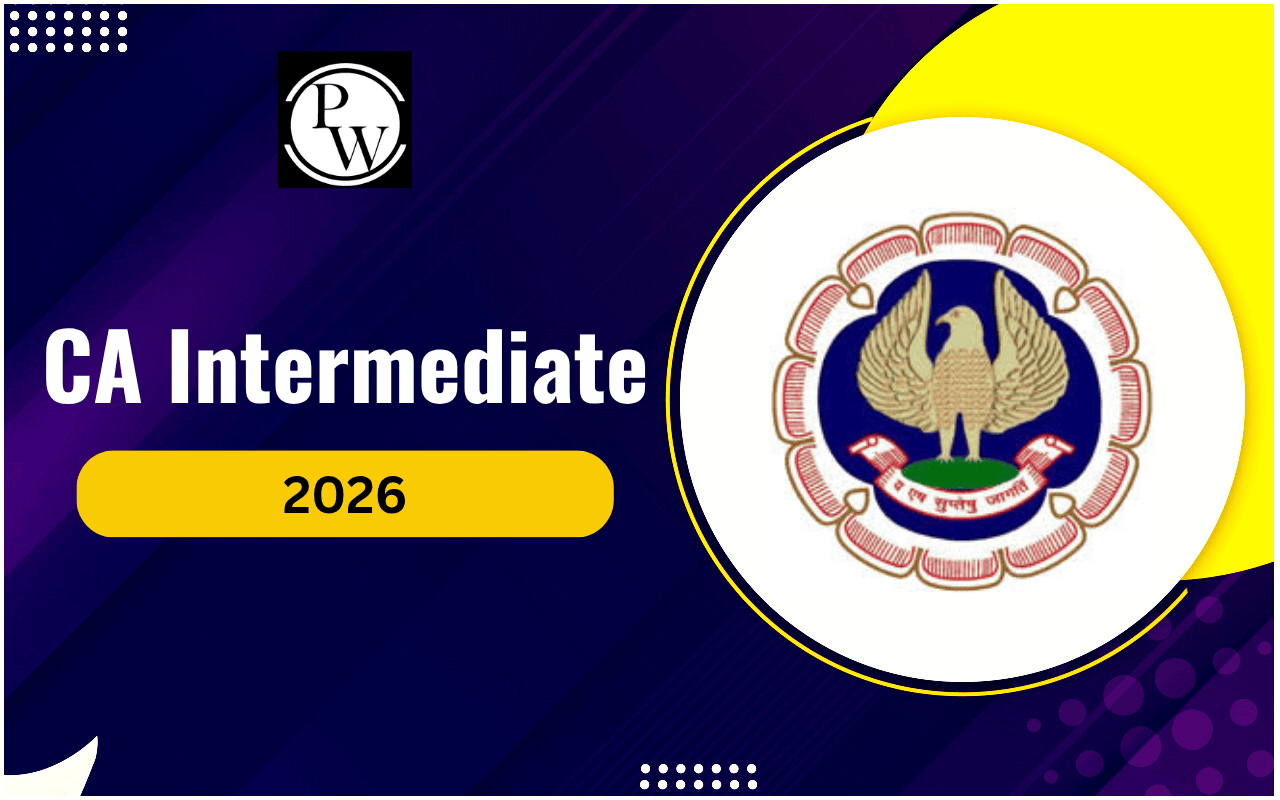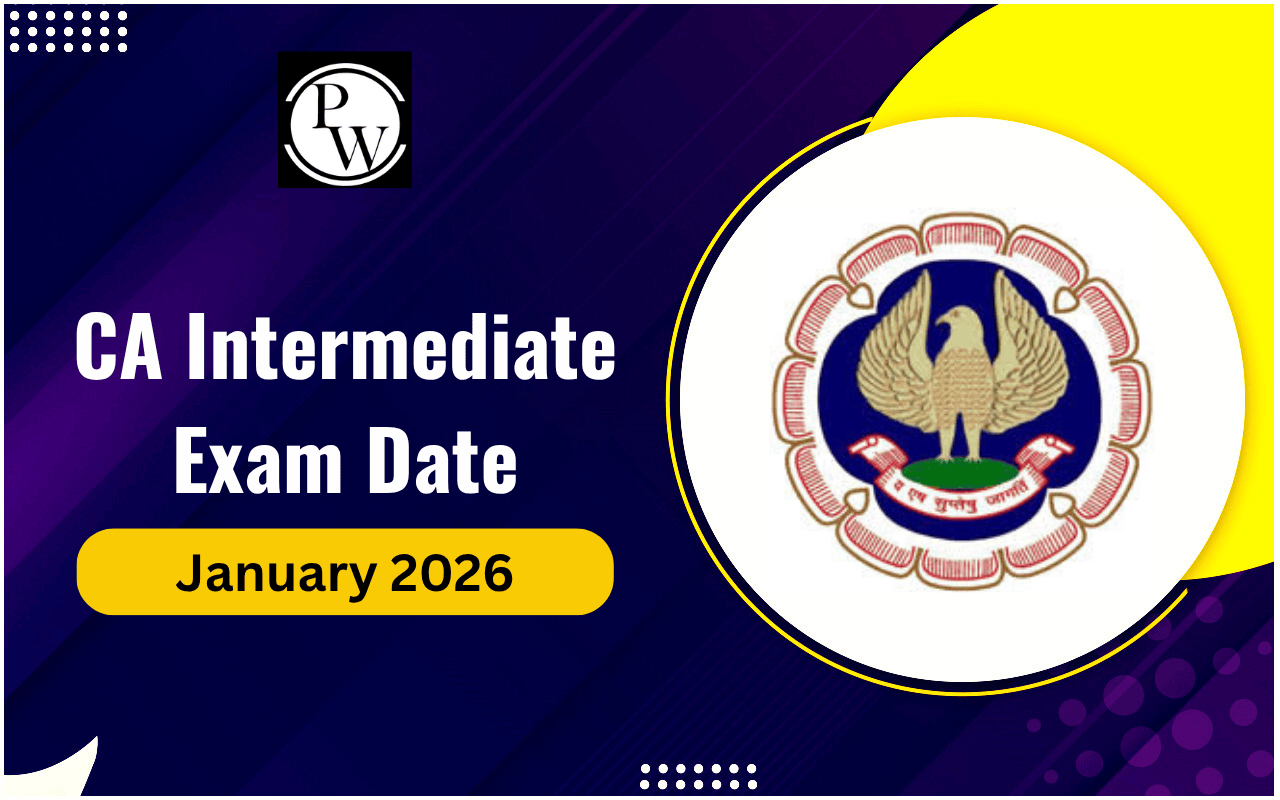
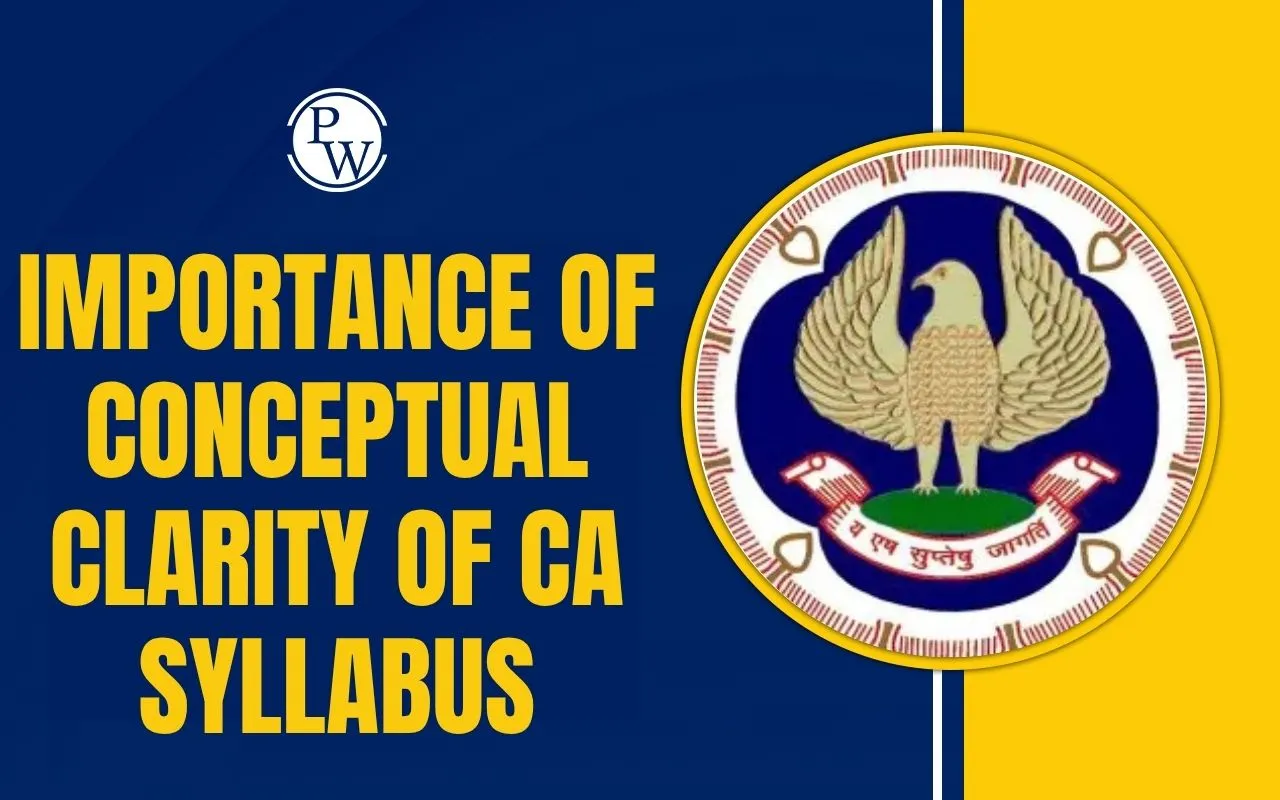
Importance of Conceptual Clarity of CA Syllabus: To get the qualification of a CA, mastering the syllabus is not just about memorising accounting laws and business principles. Students must also understand the concept behind each topic. This approach is essential for the practical application of concepts in accurately solving questions.
The ICAI emphasises logical structuring, a clear understanding of core principles, and the ability to apply concepts effectively in real-life scenarios. Therefore, relying solely on memory without understanding CA syllabus topics can limit candidates’ performance. Besides providing a base for understanding advanced accounting and business topics, conceptual clarity enables students to analyse case-based questions, identify the correct application of laws, and adapt to complex problem-solving under exam conditions.
Importance of Conceptual Clarity in CA Syllabus
Developing a strong foundation in core topics like Accounting, Taxation, Law, and Financial Management not only helps in clearing exams but also plays a critical role in efficiently performing in the professional sector. This deep understanding becomes particularly important in the Intermediate and Final levels, where questions are often based on real-world scenarios.
Here are the key significances of gaining conceptual clarity on topics covered in the CA syllabus.
Concept over Memorisation
In the journey of preparing for Chartered Accountancy, relying solely on memorisation is not an effective strategy. While it may help in recalling a few definitions or provisions, it does not equip students to tackle complex problems or case studies. To effectively succeed in CA exams, candidates must have a deep understanding of core concepts.
This approach is also crucial to apply the financial and accounting concepts in different scenarios. ICAI strategically designs the CA syllabus to test candidates on what they know and how well they can use that knowledge in a real-world context.
ICAI’s Focus
The Institute of Chartered Accountants of India (ICAI) has consistently focused on developing professionals who are capable of critical thinking instead of just content recall. The examiners expect candidates to demonstrate conceptual clarity so they can structure their answers logically and present their thoughts effectively.
ICAI evaluates students on their ability to understand the subject, analyse the problem, and deliver a well-argued response. Hence, building conceptual clarity is not just recommended, it is essential for clearing the CA exams.
Interlinking of Topics
One of the lesser-discussed yet vital aspects of CA preparation is the ability to interlink topics across various subjects. For example, what candidates learn in Financial Reporting often connects with concepts in Auditing or Strategic Cost Management.
Strong conceptual clarity allows students to make these connections effectively. It helps recognise the relevance of basic concepts as they evolve into more advanced applications in later stages of the syllabus. This integrated learning approach ultimately results in better knowledge retention and problem-solving efficiency.
Exam Readiness
Students who have built a strong foundation based on understanding rather than rote learning tend to perform better in CA exams. Conceptual clarity boosts confidence, improves question interpretation, and enhances candidates' ability to present answers logically. It also helps in solving tricky or indirect questions that often appear in CA exams. Moreover, students who understand the reason behind a concept can effectively manage stress and answer complex questions under a strict deadline.
Application of Knowledge
One of the most critical benefits of conceptual clarity in CA is the ability to clearly explain and apply key concepts across finance, accounting, law, and business-related subjects. In the CA syllabus, many topics demand practical application in real business scenarios. When students clearly understand a concept, they can adapt it to different contexts.
In-depts conceptual clarity is specifically essential for interpreting financial statements, applying tax laws, or analysing business strategy. When studying the topics of subjects such as Strategic Financial Management, Corporate and Economic Laws, and Advanced Auditing, candidates should aim to gain thorough conceptual clarity.
Long-Term Benefits
The benefits of conceptual clarity extend far beyond the examination hall. In professional life, whether in auditing, taxation, finance, or consulting, a clear understanding of concepts helps CAs make better judgments and decisions. Additionally, employers look for professionals who can analyse data, interpret laws, and give actionable insights.
How to Build Conceptual Clarity for CA?
Building conceptual clarity for the CA course is essential due to the analytical and application-based nature of its syllabus. Here's how students can effectively develop strong conceptual understanding throughout their CA preparation:
-
ICAI’s official study material promotes deep understanding. Candidates should thoroughly study all theory sections as they explain the logic behind rules and laws.
-
Candidates must aim to understand the reason behind formulas, laws, and accounting treatments. This builds an in-depth understanding that candidates can retain for a long.
-
Candidates should link related topics from different papers to develop a broader perspective. These are useful for integrated and case-based questions.
-
To test one’s understanding of key conce[pts, it is recommended to solve past ICAI papers and case studies. If candidates find a topic challenging, they must revise it and seek expert guidance to clarify their doubts.
-
Create flowcharts, diagrams, and summary maps to simplify complex topics and boost retention during revision.
|
Also Read |
|
Importance of Conceptual Clarity of CA Syllabus FAQs
Why is conceptual clarity important?
How to gain conceptual clarity?
Is conceptual clarity necessary for all CA subjects?
Which CA subject requires maximum conceptual clarity?

